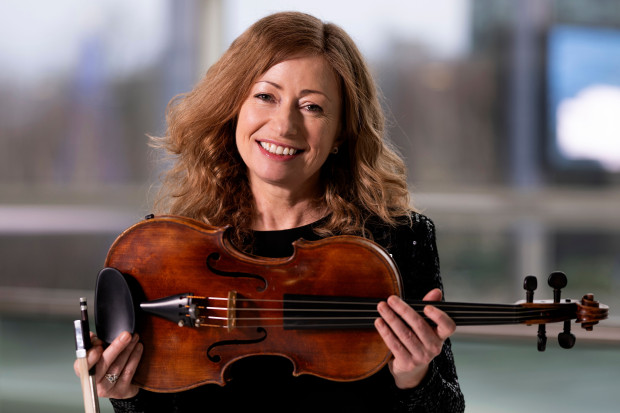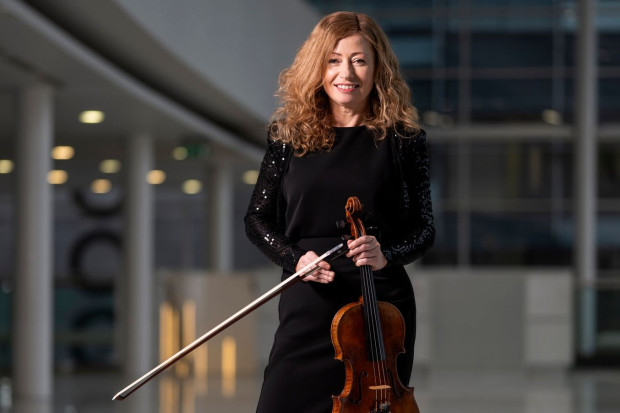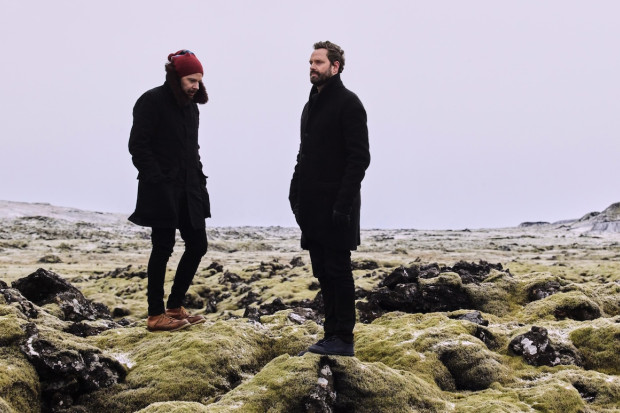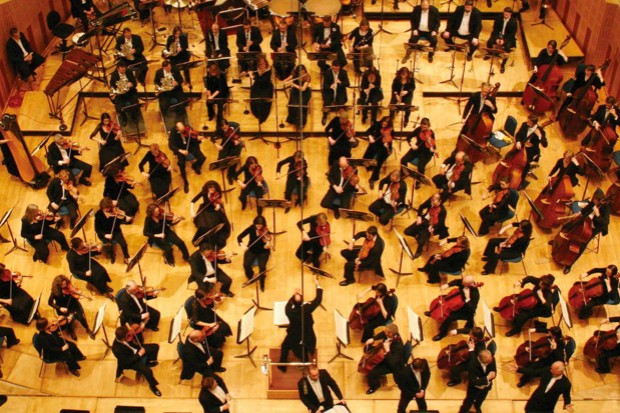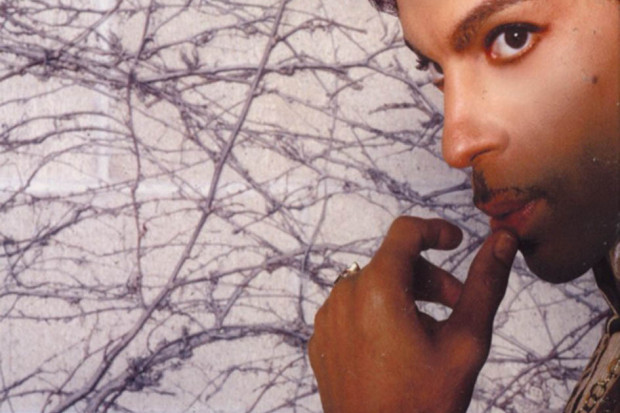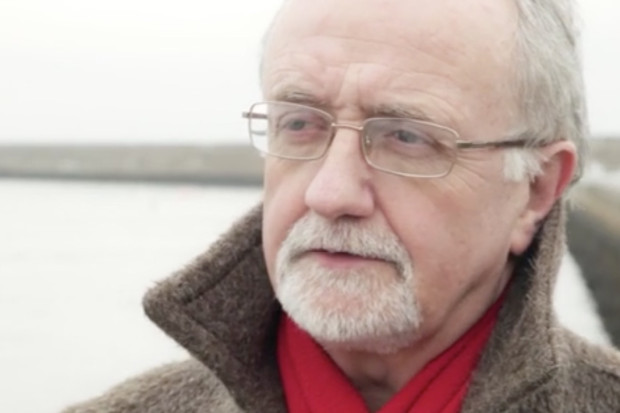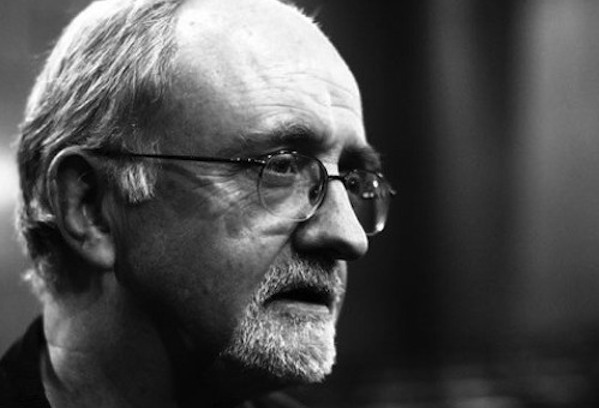
Raymond Deane (Photo: Brian Kavanagh)
'The music jumped out at me from the page as I was reading it’: Raymond Deane on his new opera ‘Vagabones’
Composer, author, activist and a forthright commentator on music, Raymond Deane is a unique voice in Ireland. From the intense stillness of his early work Embers to the boisterousness of his Violin Concerto, his work often seems to subvert the audience’s expectations. In a 2006 study of his music, writer Patrick Zuk emphasised that Deane’s work ‘defies easy categorisation’; it is ‘intensely serious’ but ‘pervaded by a distinct spirit of playfulness’; musical ‘conflicts pervade [his] scores’ but resolution is often ‘emphatically rejected’.
This Friday, Deane will premiere a new opera at the Civic Theatre in Tallaght, the tale of a witch-hunt in seventeenth-century Ireland. Vagabones is his fourth opera – his fifth if we include the dramatic work Krespel from 1983. With a libretto by the artist Renate Debrun, the work is based on the play Trespasses by Emma Donoghue, author of the best-selling novel Room.
Speaking to the Journal of Music, Deane described the tangential approach that his music takes:
I’ve always said [my music] belongs in a tradition and on a tradition – that I work within a Western European modernist tradition, but I also work on that tradition…. it’s a ‘distanced’ approach to the material … that sounds vague but it means something to me.
As well as being a composer and writer, Deane is a founder and director of the Ireland Palestine Solidarity Campaign. This may suggest that politics is a factor in his music, but he rejects this: ‘It’s because I have been directly involved in political activism that I don’t feel a burning need to transfer that activism to my music.’ His 2014 memoir In My Own Light suggests other forces: childhood bullying and solitude, a fall into alcoholism, attempts at suicide, and recovery. ‘There’s stuff in there that it’s vaguely painful for me to know that people know… but I want[ed] to be as close to the bone as possible.’
Ever since he was theatre critic for In Dublin magazine in the early 80s, Deane has been an outspoken voice in the arts. Most recently, in an interview in the Journal of Music, he criticised the younger generation of Irish composers for conforming to what he sees as a ‘hegemonic’ approach, directly influenced by the cultural influence of the US. And yet, after attending the New Music Dublin festival this year where he heard different kinds of works by younger Irish composers, he suggests he might now phrase his criticism differently.
My whole point in that interview was not to say that I want people to write like I do, or that I want people to write dialectical music. What I was saying was there are all kinds of ways to make music – don’t get pushed into this ‘anti-dialectical line’… it’s when something becomes hegemonic that you have to start worrying about it, and questioning why it it becoming hegemonic, and is it healthy.
Musical possibilities
Deane’s most recent major work was the opera The Alma Fetish. It took him six years to write and received a concert performance at the National Concert Hall in Dublin in 2015. Based on the events surrounding the affair between Oskar Kokoschka and Alma Mahler, the work employed pastiche, parody and quotations from early twentieth-century music. He describes it as the ‘most elaborate’ of his operas.
Vagabones, however, tells the more supernatural story of a widow, Florence Newton, who in 1661 was accused of witchcraft in Youghal in Cork. He says that when he first read the play based on the incident he quickly saw the potential for a musical work.
Its operatic potential struck me immediately… if the interaction between characters is presented in such a way that immediately suggests to me musical possibilities for characterising those characters, then I see that as something inspiring … The music jumped out at me from the page as I was reading it.
In particular, the character of Mary, a servant girl who accuses Newton of witchcraft in order to advance her affair with a local official, ‘more or less wrote her own music for me’, says Deane.
In the composer’s previous operas, he has used intervals or scales to represent certain characters, but his approach has developed with Vagabones.
I would give [the characters] a kind of harmonic environment… In each case, I took a chromatic scale and I superimposed three different scales of different kinds… and that gave, in a kind of accidental way, each character a succession of chords. … They provide the entire harmonic material that is used by that particular character… and that worked out incredibly well.
Deane always composes at the piano and finds the process of writing and orchestrating an opera, and then re-arranging it again for piano for rehearsals, can illustrate how the work has developed.
You have to arrange the orchestral version for piano all over again. Quite often it happens that that’s very difficult to do. There are some parts of the score that are simply not reducible to a piano version. I’ve more or less left them completely unplayable. That’s a good test that you haven’t just written piano music and orchestrated it – if you can’t go the other way around.
About Trespasses, Donoghue writes that it does have a political element, that it touches on issues of ‘Protestant/Catholic and settler/native misunderstandings and tensions’ and also asks questions ‘about powerless women, what they might have to resort to for survival…’. For Deane, however, the political points are ‘an entirely secondary matter’.
There are political points in quite a lot of things I’ve done, but they are not done for the sake of the political point. … It doesn’t necessarily inspire me. It probably gives me an extra spur, but if there’s no overt political message it doesn’t hold back the process of composition. The first opera proper that I composed, The Poet and His Double, had lots of little political aspects, but it’s not really making a political point.
And yet, Deane can hear political associations in his opera The Wall of Cloud:
[It] was composed around the time of the Good Friday Agreement and it’s all about reconciliation. Again there was absolutely no connection in my mind between the two but once the opera was actually performed I found it hard not to think of it as having some political connotations.
His relationship to his previous works often changes. ‘Sometimes I hear something I wrote thirty years ago and I suddenly hear something else I wrote – or something somebody else wrote – in it that I wasn’t aware of at all.’
Directed by Ben Barnes and featuring Carolyn Holt as Newton, Vagabones will be performed in Tallaght, Waterford and Dundalk, but also Youghal where the story began. Deane is already thinking about his next dramatic work – he appreciates the time and continuity that it takes to compose a large-scale piece.
The great thing about these projects is precisely the fact that they occupy you over a long time. You live with the project over a long time – it’s going through your head even as you’re walking down Moore Street buying bananas.
Presented by Opera Collective Ireland, Vagabones will be performed in the Civic Theatre, Tallaght (6 and 7 September), An Táin Arts Centre, Dundalk (10 September), St Mary’s Collegiate Church, Youghal (12 September), and Theatre Royal Waterford (13 September). For further details and booking, visit www.operacollectiveireland.com/production/vagabones.










